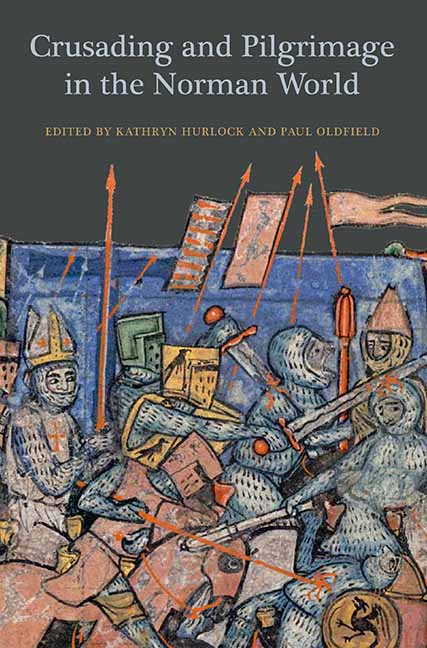1 - ‘Many Others, Whose Names I do not know, fled with them’: Norman Courage and Cowardice on the First Crusade
Published online by Cambridge University Press: 25 May 2021
Summary
Visitors to the great city of Antioch after its capture by the first crusaders in June 1098 might have noticed two memorials to certain less than heroic aspects of the siege. From the city walls dangled a number of ropes, and if our travellers had asked why these had been left there, they might have been told how several men, among them Normans from southern Italy, had deserted the crusade army when it was besieged by a great Turkish force led by Kerbogha, the emir of Mosul. The anonymous author of the Gesta Francorum, arguably the most influential of the contemporary accounts of the First Crusade, had this to say about these deserters, the so-called ‘secret rope-dancers’ (furtivi funambuli) of Antioch:
While this was going on, William of Grandmesnil, Aubré his brother, Guy Trousseau and Lambert the Poor, who were all thoroughly terrified [timore perterriti] by the battle of the previous day (8–9 June 1098), which had lasted until evening, let themselves down from the wall secretly during the night and fled on foot to the sea, and as a result both their hands and their feet were worn away to the bone. Many others, whose names I do not know, fled with them [Multique alii fugerunt cum illis, quos nescio]. When they reached the ships which were in St Simeon's port, they said to the sailors, ‘You poor devils, why are you staying here? All our men are dead and we have barely escaped death ourselves, for the Turkish army is besieging the others in the city.’ When the sailors heard this they were horrified and rushed in terror to their ships to put to sea. At that moment the Turks arrived and killed everyone whom they could catch. They burned those ships which were still in the mouth of the river and took their cargoes. And for us who stayed in Antioch, we could not defend ourselves against the attacks from the citadel, so we built a wall between us and it, and patrolled it day and night. Meanwhile we were so short of food that we were eating our horses and donkeys.
William of Grandmesnil was not only a Norman who had settled in southern Italy, he was brother-in-law to the prominent crusade leader Bohemond of Taranto.
- Type
- Chapter
- Information
- Crusading and Pilgrimage in the Norman World , pp. 13 - 30Publisher: Boydell & BrewerPrint publication year: 2015

